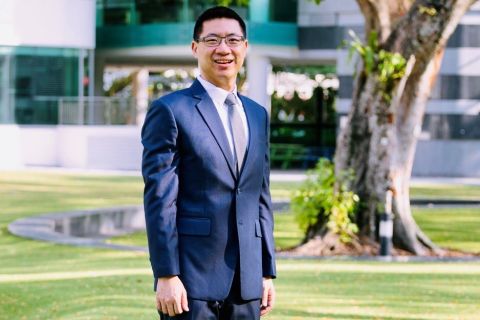
By Grace Segran
SMU Office of Research & Tech Transfer – Ordinarily, the judiciary can perform judicial review of decisions made by an executive authority, e.g. a Minister. “Such judicial review would involve the courts acting as an independent check on whether the decision had been made lawfully,” SMU Assistant Professor of Law Kenny Chng told the Office of Research & Tech Transfer.
However, certain statutes contain ouster clauses – legislative or constitutional provisions which effectively say that the judiciary is unable to review or can only perform very limited review of certain executive decisions. “Such ouster clauses significantly limit the extent to which judicial review can be performed. A recent example is the ouster clause provision in the newly passed FICA,” Professor Chng explains, referring to the Foreign Interference (Countermeasures) Act that was recently passed by the Singapore Parliament.
These clauses place the courts in a difficult position. “On one hand, judges are bound to apply the law. So, if the law says that they cannot perform judicial review, they have to take it very seriously,” he explains. “On the other hand, judges see themselves as guardians of the rule of law. As guardians of the rule of law, they are generally uncomfortable with the idea that executive decisions can be made free of supervision – as the effect of ouster clauses can be. This tendency makes judges quite keen usually to find ways to perform judicial review, even in the face of an ouster clause.”
Professor Chng, who is also the Deputy Director of the SMU Law Academy, recently had his paper “Micro-Contextual Considerations In Ouster Clause Analysis – A Comparative Study of Parallel Trends in the UK and Singapore” accepted in the International Journal of Constitutional Law for publication in 2022. He teaches “Legal Theory and Philosophy” and “Constitutional and Administrative Law” at the Yong Pung How School of Law, and his research interests span the fields of comparative administrative law, comparative constitutional law, and the intersection between legal theory and administrative law.
An overview of the paper
According to Professor Chng, what this paper aims to do is to analyse an interesting trend: that both Singapore and UK law are moving towards a similar mode of thinking about ouster clauses. “The previous mode of thinking was quite technical and might be described as a little legalistic – this was the Anisminic approach.”
The classic judicial mechanism to circumvent legislative ouster clauses was articulated in the landmark UK House of Lords decision in Anisminic Ltd v Foreign Compensation Commission. This approach interpreted ouster clauses as seeking only to oust judicial review of decisions made within the proper scope of power – not purported decisions made under errors of law. Where a decision had been made pursuant to an error of law, it would be beyond the ouster clause’s protection and thus susceptible to judicial review.
However, recent parallel developments in both the UK and Singapore may indicate a judicial desire to shift away from this approach, in favour of a more flexible analysis of an ouster clause’s effect centred around the rule of law.
“The mode of thinking that both Singapore and UK judges seem to be moving towards can be described as more direct – whether an ouster clause is given effect or not would be based on a frank and open assessment of various factors such as the nature of the subject matter at hand, the type of ouster clause, the characteristics of the decision-maker and so on,” says Professor Chng.
“After identifying this trend, the paper moves on to determine what exactly are these factors which Singapore and UK judges have found persuasive, and to discuss similarities and differences in the factors that judges in these two countries have taken to be salient,” he adds. “The paper finds that there are some striking similarities in the salience of certain factors, but that a key difference between the UK and Singapore lies in the differing salience of a national security context.”
According to Professor Chng, this paper stems from his interest in comparative administrative law, and indeed seeks to make a useful contribution to this rapidly developing area of scholarship. He has several papers in the pipeline, with one performing a comparative and theoretical study of how equal protection rights apply to executive acts, and another providing an in-depth examination of the theoretical foundations of various legal doctrines in administrative law.
Back to Research@SMU Nov 2021 Issue
See More News
Want to see more of SMU Research?
Sign up for Research@SMU e-newslettter to know more about our research and research-related events!
If you would like to remove yourself from all our mailing list, please visit https://eservices.smu.edu.sg/internet/DNC/Default.aspx

